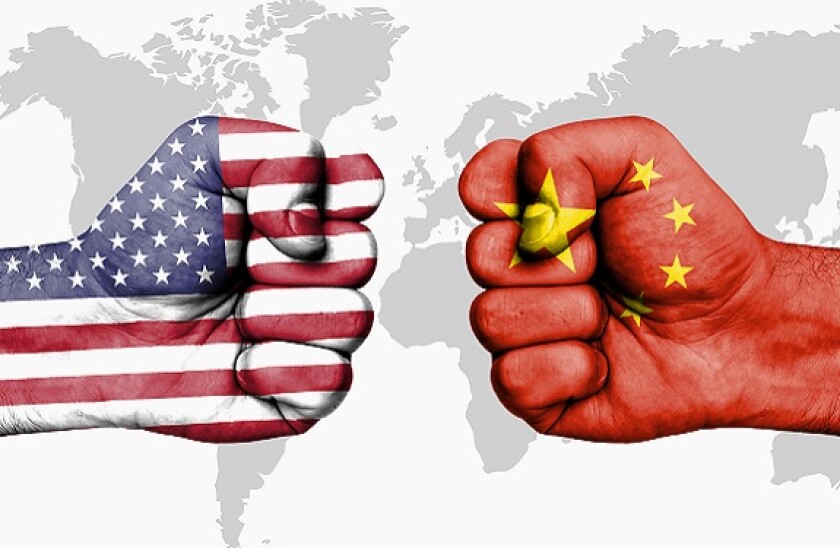China’s December Consumer Price Index (CPI) rose 0.2% year-on-year, taking the 2020 full year CPI growth to 2.5%, data released by the National Bureau of Statistics on Monday morning showed. The Producer Price Index (PPI) slid 0.4% last month.
The recovery in inflation last month was largely thanks to a rebound in food prices — 8.5% month-on-month for fresh vegetables and 6.5% for pork — and a monthly rise of 5.1% in fuel prices, noted Commonwealth Bank of Australia’s China economist, Kevin Xie, in a Monday note. Xie expects the annual CPI growth to fall to 1% in 2021 from 2.5% in 2020.
*
China’s GDP growth is forecasted to be around 8.5% for 2021, said the Chinese Academy of Sciences in a report published last Friday.
*
The Ministry of Commerce (Mofcom) on Saturday published regulations to protect Chinese companies from “unjustified” foreign sanctions.
The State Council’s commerce department could provide a Chinese person or organisation that has been restricted by foreign legislation when “engaged in normal economic, trade and related activity” an order that allows them not to “recognise, execute or follow” such restrictions.
The order will be given based on a working mechanism that will evaluate whether the punitive measures imposed by foreign countries violate international law and principles of international relations, the potential impact on China’s sovereignty, security and development, as well as the rights and interests of its citizens and organisations. “Other factors” will also be considered when assessing foreign sanctions, the Mofcom said.
*
MSCI removed China Mobile, China Telecom and China Unicom Hong Kong from its China indices last Friday. The three Chinese telecommunication companies, deemed by the US as allegedly having ties to the Chinese military, will see their American depositary receipts delisted from the New York Stock Exchange on Monday.
In a separate release, UK-based index provider FTSE Russell also made public the deletion of the Chinese trio from its global equity index series and the FTSE Global China A Inclusion indices from Monday. Their Hong Kong-traded stocks will also be excluded by S&P Dow Jones Indices from Tuesday.
*
The central bank’s monetary policy will focus on stability, governor of the People’s Bank of China (PBoC) Yi Gang told state media Xinhua. It plans to make its monetary policies more innovative and its financial support “more targeted and precise”, Yi reportedly said.
*
The PBoC’s Shanghai bureau held its 2021 working meeting. It pledged to push for the “high quality opening up” of the financial sector, with more trial programmes implemented in Shanghai.
It plans to increase oversight of financial holding companies, promote green finance in the Yangtze River Delta and better monitor the risks with bond issuers in the region.
*
The China Banking and Insurance Regulatory Commission (CBIRC) has fined seven Chinese financial institutions, including China Development Bank, Industrial and Commercial Bank of China and Postal Savings Bank of China, a total of Rmb199.5m, according to a Friday notice on the regulator’s website.
CDB was penalised Rmb48.8m for violations including allegedly providing illegal financing and illegal charges on loans to small and micro-sized enterprises. ICBC’s Rmb54.7m fine was related to its wealth management business, including alleged information disclosure-related violations.
Other institutions punished include CDB-owned China Development Bank Financial Leasing Co, China Great Wall Asset Management Co and subsidiaries Great Wall Xinsheng Trust Co and GW Bank.
*
The Chinese central bank is considering expanding its ‘three red lines’ trial policy, currently applied to 12 property developers, to cover 20 companies, Bloomberg reported.
‘Three red lines’ are the debt management requirements introduced last year by regulators to curb debt growth in the real estate sector. China Evergrande Group, China Vanke Co, Country Garden and Sunac China Holdings are among the two dozen developers currently regulated by the rules.
*
The China Securities Regulatory Commission (CSRC) has released new rules on private fund management to regulate the Rmb16tr industry. The regulation sets out requirements on private fund managers’ names and business scope, prohibits funds raised being used in four areas, and forbids 10 types of behaviour by managers, like making promises on investment returns.
*
The A-share market is one step closer to welcoming the first listed Chinese consumer finance company. Mashang Consumer Finance Co, founded in 2015, has hired China International Capital Corp and China Securities Co for pre-IPO education, a process required by the CSRC to go public.
Mashang received approval from the CSRC Chongqing bureau last September for the listing. It plans to issue no more than 1.333bn shares.

